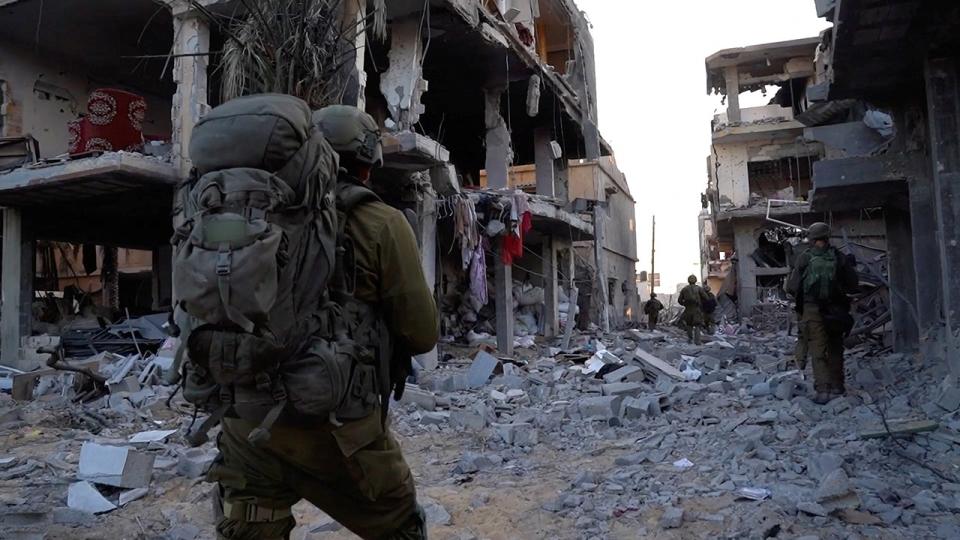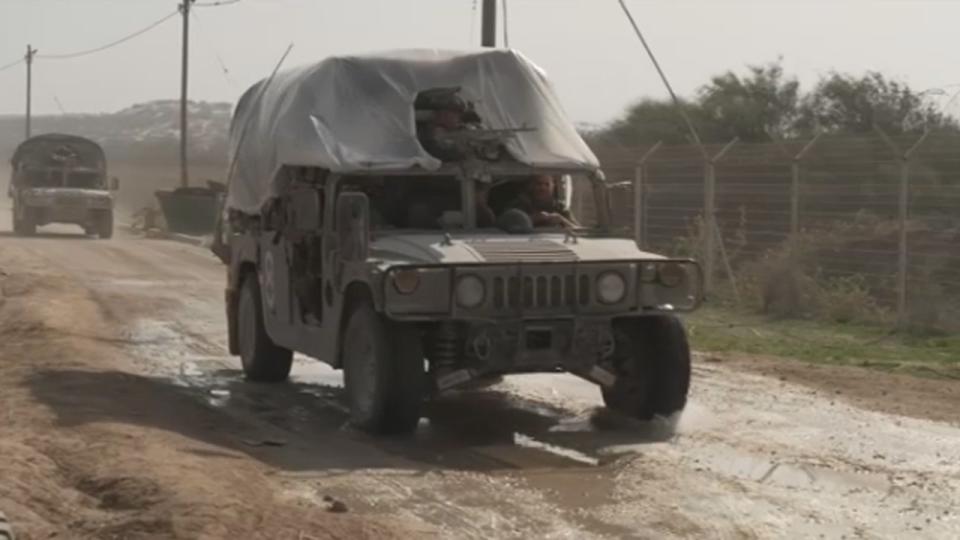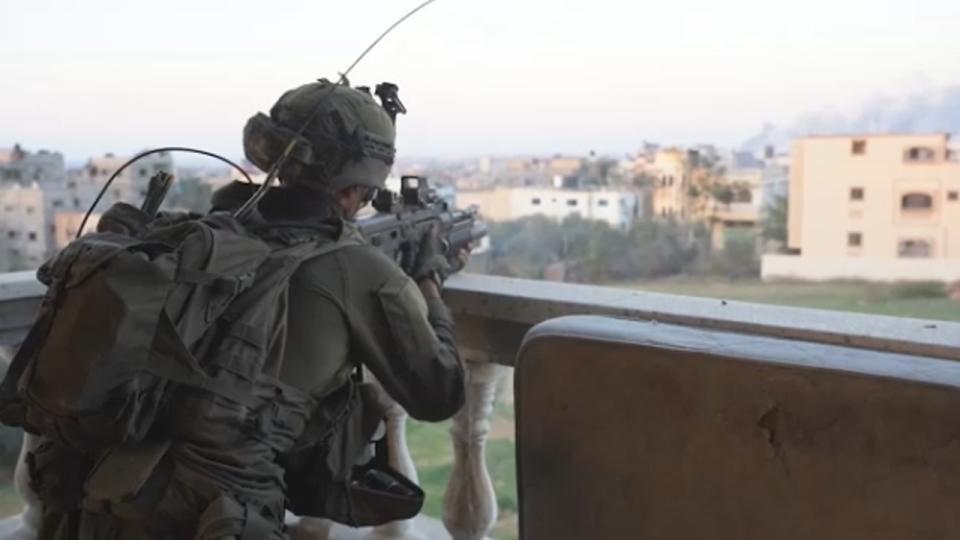

In the ongoing conflict between Israel and Hamas, tensions and violence have reached a deadly peak for Israel, yet their unwavering determination to protect their nation remains steadfast. As the clashes persist, both sides face the devastating consequences of a war that shows no signs of relenting. With each passing day, Israel’s resolve grows stronger, as they stand firm in their commitment to safeguard their land and its people.
▶ [Kucoin] Transaction fee 0% discount CODE◀
Background of the Israel-Hamas Conflict
Historical roots
The conflict between Israel and Hamas has deep historical roots, stretching back to the establishment of the state of Israel in 1948. The creation of Israel led to the displacement of many Palestinians, and this has been a major source of tension between the two sides. Additionally, there have been ongoing disputes over the control of land, access to resources, and the status of Jerusalem. These historical grievances have contributed to the ongoing conflict and have made it difficult to achieve a lasting peace.
Recent tensions
In recent years, tensions between Israel and Hamas have escalated, leading to periods of intense violence and military confrontations. These tensions have been fueled by a number of factors, including the failure of previous peace talks, the expansion of Israeli settlements in the West Bank, and the continued blockade of Gaza. Both sides have engaged in provocative actions and rhetoric, further exacerbating the situation and making it more difficult to find a way forward.
Triggering events
The most recent round of violence between Israel and Hamas was triggered by a series of events, including the forced evictions of Palestinian families in the Sheikh Jarrah neighborhood of East Jerusalem, clashes between Israeli police and Palestinian protestors at the Al-Aqsa Mosque, and the launching of rockets by Hamas into Israeli territory. These events sparked a cycle of violence, with Israel responding with air strikes on Gaza and Hamas launching more rockets, leading to a dramatic escalation in the conflict.
Israel’s Determination to Deal with Hamas
Military objectives
Israel’s primary objective in dealing with Hamas is to ensure the security and safety of its citizens. In response to the rocket attacks and other acts of aggression by Hamas, the Israeli military launched a massive offensive against targets in Gaza. The military aims to degrade Hamas’ military capabilities, destroy the terrorist infrastructure, and prevent further attacks on Israeli territory.
Long-term strategies
In addition to its immediate military objectives, Israel is also focused on long-term strategies to address the Hamas threat. This includes efforts to counter the spread of Hamas’ influence in the West Bank and to disrupt the group’s funding networks. Israel is also working to strengthen its relationships with other regional players and forge new alliances to enhance its security in the face of ongoing threats.
Public support
Israel’s determination to deal with Hamas is bolstered by strong public support within the country. Israelis are united in their desire for security and peace, and there is broad agreement that Hamas poses a serious threat that must be addressed. The government’s response to Hamas’ aggression has been widely supported, with many Israelis expressing confidence in the military’s ability to protect them and restore calm to the region.
▶ [Kucoin] Transaction fee 0% discount CODE◀
Hamas’ Response and Escalation
Rocket attacks on Israel
In response to Israeli actions, Hamas has launched a barrage of rockets into Israeli territory. These rockets have targeted major population centers, including Jerusalem and Tel Aviv, causing widespread panic and destruction. The indiscriminate nature of these attacks has put innocent civilians at risk and is in clear violation of international law. Hamas has demonstrated its willingness to escalate the conflict and inflict harm on Israeli civilians in an attempt to achieve its objectives.
Tunnel infiltrations
Hamas has also sought to infiltrate Israeli territory through underground tunnels, with the intent of carrying out terrorist attacks and kidnapping Israeli soldiers. The discovery and destruction of these tunnels by the Israeli military has prevented further loss of life and illustrates the seriousness of the threat posed by Hamas. These attempts to breach Israeli borders further highlight the need for Israel to take decisive action to neutralize Hamas’ capabilities.
International condemnation
Hamas’ actions have been widely condemned by the international community. Numerous world leaders and organizations have expressed their concern over the indiscriminate rocket attacks on Israeli civilians and have called for an immediate end to the violence. The targeting of civilian populations and the use of human shields are not only morally reprehensible but also in violation of international humanitarian law. The international community expects Hamas to cease its attacks and engage in meaningful efforts towards a peaceful resolution of the conflict.
Israeli Offensive and Counterterrorism Operations
Air strikes on Gaza
Israel has launched a series of air strikes on targets in Gaza in an effort to degrade Hamas’ military capabilities and disrupt the group’s infrastructure. These air strikes have targeted Hamas rocket launch sites, weapons storage facilities, and the homes of senior Hamas leaders. While Israel has taken steps to minimize civilian casualties, there have been reports of collateral damage and the loss of innocent lives. The Israeli military has stressed that its operations are aimed solely at Hamas targets and that every effort is made to avoid harm to non-combatants.
Ground operations
In addition to air strikes, Israel has also conducted ground operations in Gaza, deploying troops and tanks to engage Hamas militants. These operations have focused on neutralizing tunnels used by Hamas to launch attacks and smuggling weapons. While ground operations carry a higher risk of casualties for Israeli soldiers, they are necessary to effectively target and disrupt Hamas’ operations and infrastructure.
Terrorist infrastructure targets
Israel’s offensive operations have been strategically focused on targeting Hamas’ terrorist infrastructure. This includes the destruction of weapons manufacturing facilities, command centers, and communication networks. By targeting these key assets, Israel aims to cripple Hamas’ ability to mount further attacks and significantly degrade the group’s military capabilities. Israel is committed to dismantling the infrastructure that supports Hamas’ terrorist activities and preventing the group from rearming in the future.
Impact on Israeli Society and Politics
Civilian casualties
The ongoing conflict has resulted in tragic civilian casualties on both sides. In Israel, innocent civilians have been injured or killed by Hamas rocket attacks, causing widespread fear and trauma. Similarly, the Israeli military’s offensive in Gaza has led to the loss of civilian lives, with reports of entire families being killed in strikes. The loss of innocent lives is deeply regrettable, and efforts must be made to prevent further civilian casualties and protect the lives of all individuals caught in the crossfire.
Public opinion
The conflict has had a profound impact on public opinion in Israel. There is a strong sense of unity and determination to protect the country and its citizens from Hamas’ aggression. There is also recognition of the complex and challenging nature of the conflict, and the need to find a long-term solution that ensures lasting peace and security. The Israeli public supports the government’s efforts to confront Hamas and recognizes the need for a comprehensive strategy to address the root causes of the conflict.
Political leadership
The conflict has put significant pressure on Israeli political leaders to respond effectively and decisively. The government has been focused on protecting its citizens and has worked collaboratively with the military to develop strategies and policies to address the threat posed by Hamas. Israeli political leaders have also been engaging with the international community to garner support and understanding for their actions. The conflict has underscored the importance of strong and capable leadership in navigating this complex and volatile situation.
Efforts for Ceasefire and Mediation
Regional and international involvement
Efforts to achieve a ceasefire and mediate a peaceful resolution to the conflict have involved regional and international actors. Countries like Egypt, Jordan, and Qatar have taken an active role in mediating between Israel and Hamas, using their regional influence to try and broker a truce. The United States and other global powers have also been actively engaged, exerting diplomatic pressure on both sides and advocating for an end to the violence.
Role of Egypt
Egypt has historically played a key role in facilitating negotiations between Israel and Hamas. As a neighbor to Gaza and a signatory to the peace treaty with Israel, Egypt has a vested interest in maintaining stability and preventing further escalation. Egyptian officials have been involved in shuttle diplomacy, conducting talks with Israeli and Hamas representatives to try and bring an end to the violence and negotiate a ceasefire agreement.
Challenges and prospects
While efforts for a ceasefire and mediation have been ongoing, significant challenges remain. Achieving a lasting peace agreement requires addressing deep-rooted grievances, building trust between the parties, and finding a mutually acceptable compromise. The current round of violence has further eroded trust and made the prospects for a durable ceasefire more challenging. However, international pressure and the desire for stability may provide an opportunity to de-escalate the conflict and renew efforts towards a negotiated settlement.
Humanitarian Crisis in Gaza
Destruction of infrastructure
The conflict has taken a devastating toll on Gaza’s infrastructure, with residential buildings, roads, and vital services being damaged or destroyed. The destruction of homes and infrastructure has resulted in a humanitarian crisis, leaving many Palestinians without access to basic necessities such as clean water, electricity, and healthcare. The international community must urgently address the humanitarian needs of the people in Gaza and work towards the reconstruction and recovery of the region.
Displacement and refugees
The conflict has forced thousands of Palestinians to flee their homes, seeking refuge in schools, hospitals, and other temporary shelters. The displacement of civilians has created a dire situation, with overcrowding and limited resources exacerbating the already challenging conditions. The support and protection of displaced Palestinians is crucial, and efforts must be made to ensure their safety and provide for their basic needs until they can return to their homes.
Access to essential services
The ongoing violence has severely disrupted access to essential services in Gaza. The destruction of infrastructure, including water and sewage systems, has led to a significant deterioration in living conditions and poses serious health risks. The international community must work together to ensure that necessary resources and support are provided to address the humanitarian crisis and restore essential services to the people of Gaza.
Hamas’ Strategic Objectives
Attacks on Israeli civilians
One of Hamas’ primary objectives is to carry out attacks on Israeli civilians in an attempt to spread fear and disrupt daily life. The indiscriminate launching of rockets into Israeli territory is a clear indication of Hamas’ willingness to target civilians, which is not only morally reprehensible but also a violation of international law. Hamas seeks to undermine the security and stability of Israel and gain international attention through its acts of violence and terrorism.
Global recognition
Hamas also seeks global recognition and legitimacy as a governing authority. It has worked to establish itself as a leading force within Palestinian politics and has gained support from various countries and organizations. However, its tactics and ideology continue to be regarded as terrorist activities by many nations. Hamas aims to use the conflict with Israel as a platform to gain international recognition for its cause and to rally support amongst its followers.
Control over Palestinian territories
Another strategic objective of Hamas is to gain control and exert influence over Palestinian territories, particularly in Gaza. Hamas views itself as the true representative of the Palestinian people and seeks to challenge the authority of the Palestinian Authority, which is based in the West Bank. Through its military efforts and social programs, Hamas aims to consolidate its grip on power in Gaza and weaken the influence of its political rivals.
Israel’s Security Concerns
Preventing rocket attacks
Israel’s primary security concern is to prevent rocket attacks on its territory. The constant threat of rockets launched by Hamas has led to a state of insecurity and fear for Israeli civilians living near the Gaza border. Israel has invested significant resources in developing a sophisticated missile defense system, known as Iron Dome, which intercepts incoming rockets and prevents them from causing widespread damage and casualties. The continued development and improvement of this defense system are crucial to Israel’s security strategy.
Neutralizing Hamas’ capabilities
Israel’s security concerns also revolve around neutralizing Hamas’ capabilities to carry out attacks and threaten its citizens. This includes efforts to disrupt Hamas’ weapons smuggling networks, dismantle its tunnels, and target its leadership and command structures. By neutralizing these capabilities, Israel aims to degrade Hamas’ ability to launch attacks and diminish its influence in the region.
Defending Israeli borders
The defense of Israeli borders is of paramount importance to ensure the safety and security of the country. The threat posed by Hamas’ rocket attacks and attempts to infiltrate Israeli territory necessitates strong border security measures. Israel is committed to defending its borders and preventing any further encroachments by Hamas or other terrorist groups. This includes the use of advanced surveillance technology, physical barriers, and a strong military presence to deter and respond to any potential threats.
International Community’s Response
United Nations’ involvement
The United Nations has been actively involved in addressing the Israel-Hamas conflict, voicing concerns over the loss of civilian lives and calling for an immediate ceasefire. The Security Council, through its resolutions and statements, has urged both parties to exercise restraint and work towards a peaceful resolution. The UN has also called for the protection of civilians and the respect for international humanitarian law by all parties involved. Efforts are underway to support humanitarian aid and reconstruction efforts in Gaza, with the UN playing a crucial role in coordinating these efforts.
Statements from world leaders
World leaders from various countries have denounced the violence and called for an end to the conflict. They have expressed their concerns over the loss of innocent lives and the humanitarian crisis unfolding in Gaza. Calls for de-escalation and the resumption of negotiations have been made by leaders from the United States, Europe, and other parts of the world. These statements highlight the importance of international pressure to find a peaceful solution and the need for all parties to engage in dialogue and compromise.
Calls for de-escalation
There have been widespread calls from the international community for an immediate de-escalation of the conflict. These calls have emphasized the need for all parties to cease hostilities and return to the negotiating table. The international community recognizes that a sustainable solution can only be achieved through dialogue and a commitment to peaceful coexistence. The calls for de-escalation underscore the urgency of finding a way forward that prioritizes the well-being of all individuals in the region and seeks to address the underlying causes of the conflict.
RELATED POSTS
View all






